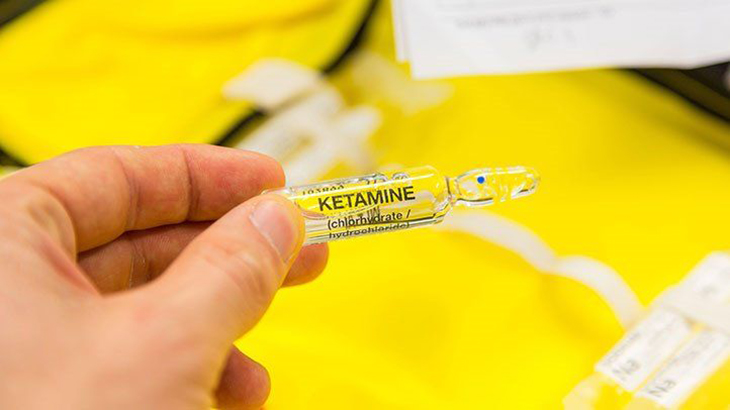
Ketamine is best known as an anesthetic drug for animals, but back in the 1970s, it was also used to treat injured soldiers during the Vietnam War.
These days, ketamine has been studied for antidepressant use, mostly due to the fact that it can take only hours to work rather than the typical antidepressants, which can take a number of weeks to work. However, ketamine has a number of adverse side effects, which makes dosing at a limited amount for only a limited amount of time as well.
But a new Northwestern Medicine study has discovered for the first time what exactly makes ketamine work so fast, as well as how it can be adjusted to be used as a drug minus the horrible side effects.
The study, which was done in mice, demonstrates how ketamine works rapidly as an antidepressant by increasing the activity of the miniscule number of newborn neurons that are a part of the ongoing neurogenesis in the brain.
While new neurons are always made at a slow pace, it’s also known that an increase in the number of neurons also leads to behavioral changes. Meanwhile, other antidepressants work by increasing the neurogenesis rate, which means that they increase the number of neurons. The problem with this is that it takes weeks for this to occur.
On the other hand, ketamine can produce behavioral changes by simply increasing the activity of the existing new neurons. Moreover, it can happen immediately when the cells are activated by the ketamine drug.
Dr. John Kessler is the lead study author and professor of neurology at Northwestern University Feinberg School of Medicine, as well as the Ken and Ruth Davee Professor of Stem Cell Biology. He shares, “We narrowed down the population of cells to a small window that is involved. That’s important because when you give ketamine to patients now, it affects multiple regions of the brain and causes a lot of adverse side effects. But since we now know exactly which cells we want to target, we can design drugs to focus only on those cells.”
The side effects of ketamine can be quite adverse, including nausea, vomiting, blurred or double vision, drowsiness, insomnia, and addiction.
The Goal Is to Develop a Faster-Working Antidepressant
Dr. Kessler also says, “The goal is to develop an antidepressant that doesn’t take three to four weeks to work because people don’t do well during that period of time. If you are badly depressed and start taking your drug and nothing is happening, that is depressing in itself. To have something that works right away would make a huge difference.”
In addition, he also shares, “We prove neurogenesis is responsible for the behavioral effects of ketamine. The reason is these newborn neurons form synapses (connections) that activate the other cells in the hippocampus. This small population of cells acts like a match, starting a fire that ignites a bunch of activity in a lot of other cells that produce the behavioral effects.”
“However, it has not been understood that the same behavioral changes can be accomplished by increasing the activity of the new neurons without increasing the rate at which they are born. This obviously is a much more rapid effect,” Dr. Kessler adds.
During the study, the Northwestern team of scientists created a mouse where ‘only the very small population of newborn neurons had a receptor that allowed these cells to be silenced or activated by a drug that did not affect any other cells in the brain.’ What they found is if they silenced the activity of these cells, the ketamine no longer worked. But if they used the ketamine to activate this population of cells, the results actually mirrored those of the drug.
In conclusion, Dr. Kessler explained that what this experiment showed is it’s ‘the activity of these cells that is responsible for the effects of ketamine.’
You can see the published study in Nature Communications.



